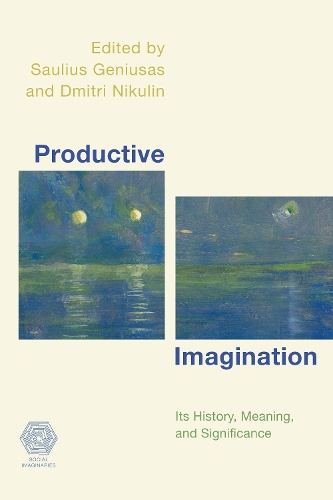
Productive Imagination: Its History, Meaning and Significance
(Hardback)
Available Formats
Publishing Details
Productive Imagination: Its History, Meaning and Significance
By (Author) Saulius Geniusas
Edited by Dmitri Nikulin
Bloomsbury Publishing PLC
Rowman & Littlefield International
30th May 2018
United Kingdom
Classifications
Professional and Scholarly
Non Fiction
190
Physical Properties
Hardback
206
Width 161mm, Height 229mm, Spine 23mm
494g
Description
Although the concept of productive imagination plays a fundamental role in Kant, German Idealism, Romanticism, Phenomenology and Hermeneutics, the meaning of this central concept remains largely undetermined. The significance of productive imagination is therefore all-too-often either inflated or underrated. The articles collected in this volume trace the development of productive imagination through the history of philosophy, identify the different meanings this concept has been ascribed in different philosophical frameworks, and raise the question anew concerning this concepts philosophical significance. Special attention is given to the historical background that underlies the emergence of productive imagination in modernity, to Kants concept of productive imagination, to the further development of this concept in German Idealism, Wilhelm Dilthey, Edmund Husserl, Ernst Cassirer and Martin Heidegger, Jean-Paul Sartre and Paul Ricoeur. A group of leading scholars present a systematic and comprehensive reference tool for anyone working in the fields of social imaginaries.
Reviews
This welcome volume explores the conceptual history of productive imagination by focusing on the development of the concept from its prefiguration in antiquity to its modern articulation in and after Kant. Special attention is paid to the romantic, phenomenological and hermeneutical traditions, with the main reference authors being F. Schlegel, Novalis, Dilthey and Ricoeur, as well as Cassirer and Heidegger. -- Gnter Zller, Professor of Philosophy, University of Munich
[This volume] offers a valuable combination of introductory guidance and original theses. It contains helpful clarifications of how philosophical concepts develop through inter-philosophical dialogue but also in conversation with the arts. It likewise opens avenues for exploring the grand, metaphysical question of human creativity in history. If we approach it aware of its deliberate focus on the Kantian and continental tradition, we will see that its chapters develop a coherent conceptual history of a core moment in philosophy. * Phenomenological Reviews *
Author Bio
Saulius Geniusas is Associate Professor of Philosophy at the Chinese University of Hong Kong. He is the author of The Origins of the Horizon in Husserls Phenomenology (2012), co-editor of Hermeneutics and Phenomenology: Figures and Themes (with Paul Fairfield, forthcoming), Relational Hermeneutics: Essays in Comparative Philosophy (with Paul Fairfield, forthcoming), and Phenomenological Ethics (A Special Issue of Santalka: Filosofija, 17/3, 2009). Dmitri Nikulin is Professor of Philosophy at The New School for Social Research in New York. He is the author of a number of books including Matter, Imagination and Geometry (2002), On Dialogue (2006), Dialectic and Dialogue (2010), Comedy, Seriously (2014), and The Concept of History (2017).
